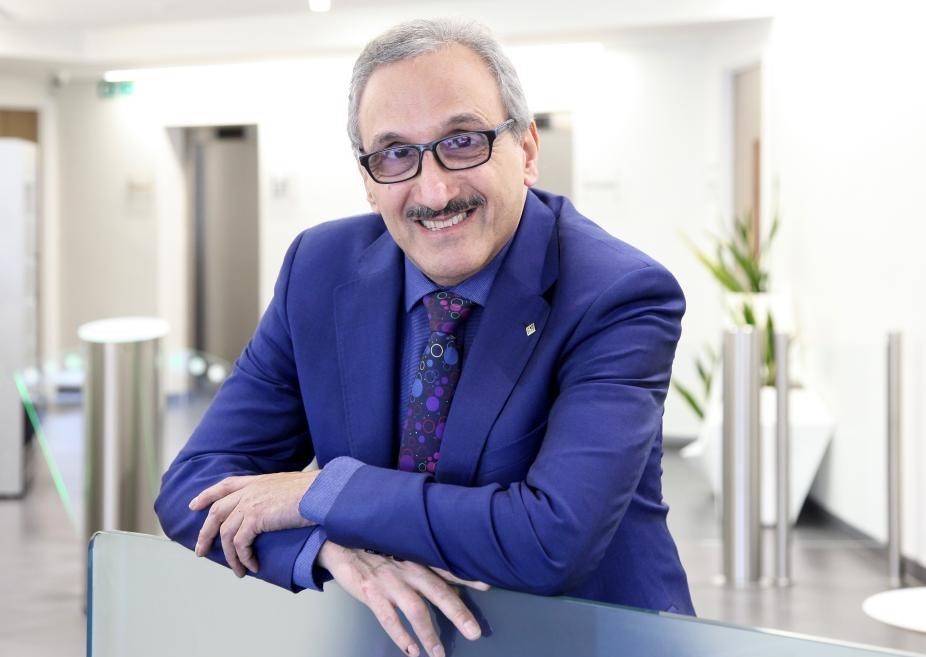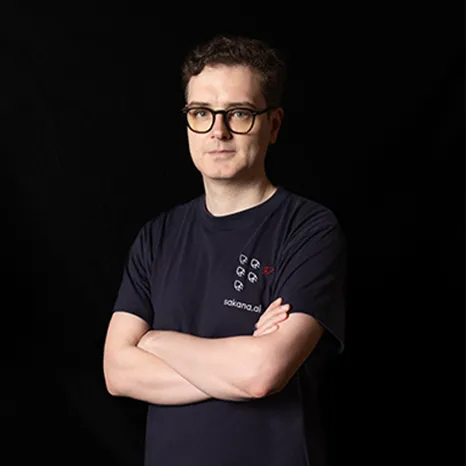From digital devices to speech recognition and artificial intelligence, Birmingham graduates have played a key role in technology innovations that are woven into the fabric of our everyday lives.
The first computer
The first computer Mary Lee Berners-Lee (BSc Mathematics, 1947) was a wartime student at Birmingham who went on to work with the programming team developing the first commercially available computer in the world.
Mary graduated in 1947, joining the electrical engineering firm Ferranti where she worked on programming for the Ferranti Mark I, launched in 1951. Not only did she play a key role in the project, she also led a successful equal pay campaign, almost 20 years before equal pay became law.
Her two sons are the climate impact researcher Mike Berners-Lee; and the internet pioneer Tim Berners-Lee. Although Mary maintained her biggest contribution was to be 'the grandmother of the web', in fact she led the way towards both modern computer programming and women's rights.
Speech and handwriting recognition
Back in the early 1980s, the British-American inventor and entrepreneur Ronjon Nag (BSc Electronic and Electrical Engineering, 1984) was taking his first steps into higher education in Birmingham's School of Engineering.
Now a renowned entrepreneur and Professor at Stanford University, Ronjon focused his final year project at Birmingham on speech recognition. This topic was innovative enough to enable him to embark on a PhD at the University of Cambridge, and from there to MIT and Stanford.
Ronjon's first start-up company (one of several), was called Lexicus. Formed in 1992, it was among the earliest designers of handwriting - and later speech - recognition software. His advances in these areas, as well as in predictive text development has led to company sales to Motorola, BlackBerry and Apple. Most recently he is pursuing advances in Al through his appointment as Executive Director of Al growth company, capAl.
Ronjon has long been a champion of upcoming entrepreneurs, sponsoring a commercialisation prize for students at Birmingham for several years. 'My final year project at Birmingham on speech recognition opened doors I never imagined possible - from Cambridge to MIT to Stanford, and ultimately to innovations that billions of people now use every day. Birmingham gave me the foundation to push boundaries in technology, and I'm proud to give back by supporting the next generation of student entrepreneurs who will transform our world in ways we can't yet envision.'
Powering the digital revolution
 Throughout the 1990s we became accustomed to rapid advances in technology. While computers became increasingly powerful, the development of microprocessors ensured that devices started to shrink, becoming more portable and, in many cases, cheaper.
Throughout the 1990s we became accustomed to rapid advances in technology. While computers became increasingly powerful, the development of microprocessors ensured that devices started to shrink, becoming more portable and, in many cases, cheaper.
Sir Hossein Yassaie (BSc Electronics and Communications, 1979; PhD Signal Processing, 1983) is a pioneering designer of general and special-purpose processing technologies in semiconductor chips that made much of this possible. While working for STMicroelectronics, he helped the company grow into a multi-billion-dollar business through innovations such as the first digital TV as well as special-purpose signal processing chips for computational intensive applications.
Through his company, Imagination Technology, Sir Hossein continued his focus on semiconductor and graphics processor development. At its peak it was estimated some 50 per cent of all mobile phones sold globally contained Imagination chips.
Meanwhile, Imagination's consumer arm, Pure, revolutionised digital radio and even launched the first sub-£100 model, which rapidly sold out after its 2002 launch. He is now an investor in and advisor to some of the leading UK and European start-ups and scale-up companies including Yoto, Roli, Mindtrace and Liberate-Al.
He said: 'Innovating to disrupt existing markets in order to create more effective and efficient solutions has always been and remains my passion. With the advent of Al the opportunities for such transformations have dramatically expanded. However, even more than before, the success will depend on understanding the target use case.'
The path to artificial intelligence
 It's clear that artificial intelligence is likely to dominate the technology space for many years to come and our graduates are playing their part in the fast-paced Al world. Llion Jones (BSc Artificial Intelligence and Computer Science, 2008: MSc Advanced Computer Science, 2009) developed his fascination with Al while studying at the University of Birmingham.
It's clear that artificial intelligence is likely to dominate the technology space for many years to come and our graduates are playing their part in the fast-paced Al world. Llion Jones (BSc Artificial Intelligence and Computer Science, 2008: MSc Advanced Computer Science, 2009) developed his fascination with Al while studying at the University of Birmingham.
His seminal research paper, Attention's all you need, published in 2017, introduced the transformer architecture - otherwise known as the'T'in ChatGPT. This architecture enables machine learning models such as natural language processors to focus on the context of the information being fed in. That allows more accurate interpretations and responses.
Recalling his time at Birmingham, Llion says 'I had a really good time here, very fond memories and the quality of the lecturers and the professors and the material that I learnt here definitely set me up in a big way for the success that I've had since then.'
Find out more about Llion's story as part of our Built in Birmingham campaign.